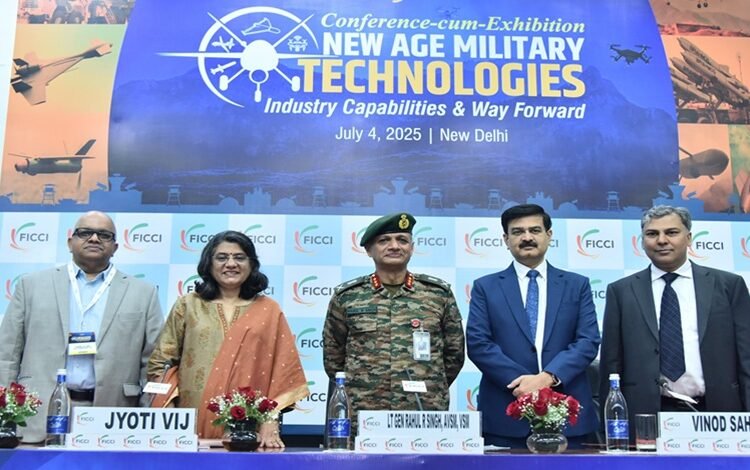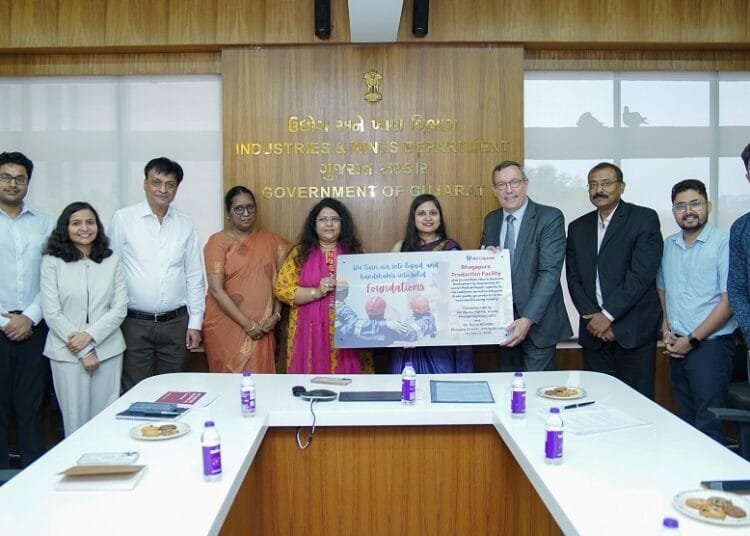3 bidders get LoA to set 8,737 MW of fully integrated solar PV module manufacturing units
The Government is implementing a Rs.24,000 crore Production Linked Incentive (PLI) Scheme, under the National Programme on High Efficiency Solar PV Modules, for achieving domestic manufacturing capacity of Giga Watt (GW) scale in High Efficiency Solar PV modules and solar PV cells.
An estimated capital expenditure of around US$7.2 billion would be required to make India leader in solar manufacturing by setting up 16 GW of polysilicon, 29 GW of ingot and wafer, 55 GW of cell and 58 GW of module. This estimate was given by the Centre for Energy Finance of the Council on Energy, Environment and Water (CEEW-CEF) in a report in May 2022.
The PLI Scheme has provision for selected solar PV module manufacturers for five years, post commissioning, on manufacture and sale of High Efficiency Solar PV modules.
The Scheme is being implemented in two tranches, Minister of New Renewable Energy R.K. Singh told Parliament on 23 Mar 2023 in an update on the sector.
Tranche-I has an outlay of Rs.4,500 crore under which Letters of Award have been issued to three successful bidders for setting up of 8,737 MW of fully integrated solar PV module manufacturing units by November-December 2024. The three have invested around Rs.2,441 crore till February 2023.
For Tranche-II, with an outlay of Rs.19,500 crore, the Scheme Guidelines have been issued on 30 Sept 2022 and tender document for selection of solar PV manufacturers has been issued on 18 Nov 2022.
Selection of solar PV manufacturers under the Rs.19,500 crore Tranche-II has not yet been done.
Solar Photovoltaic module manufacturers are not required to report their production to Ministry of New & Renewable Energy (MNRE), and therefore, this data is not available with MNRE.
However, the total capacity for manufacturing Solar Photovoltaic Modules in the country, as per the Approved List of Models and Manufacturers (ALMM) is about 22.4 GW per annum.
The MNRE has been consistently bringing out policies to increase the manufacturing of indigenous Solar Photovoltaic Modules.
Some of the other initiatives, inter-alia, include:
Domestic Content Requirement (DCR): Under some of the current schemes of the MNRE, namely CPSU Scheme Phase-II, PM-KUSUM Component B and Grid-connected Rooftop Solar Programme Phase-II, wherein government subsidy is given, it has been mandated to source solar PV cells and modules from domestic sources.
Preference to ‘Make in India’ in Public Procurement: Through implementation of ‘Public Procurement (Preference to Make in India) Order’, procurement and use of domestically manufactured solar PV modules and domestically manufactured solar inverters has been mandated for Government and Government entities.
Imposition of Basic Customs Duty on import of solar PV cells & modules: The Government has imposed Basic Customs Duty (BCD) on import of solar PV cells and modules, with effect from 1 April 2022.
Discontinuation of Customs Duty Concessions: MNRE has discontinued issuance of Customs Duty Concession Certificates for import of material and equipment for initial setting up of solar PV power projects with effect from 2 Feb 2021. fiinews.com










